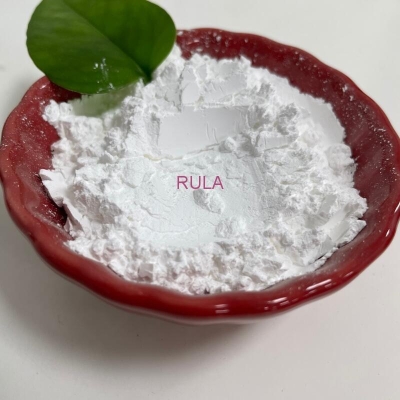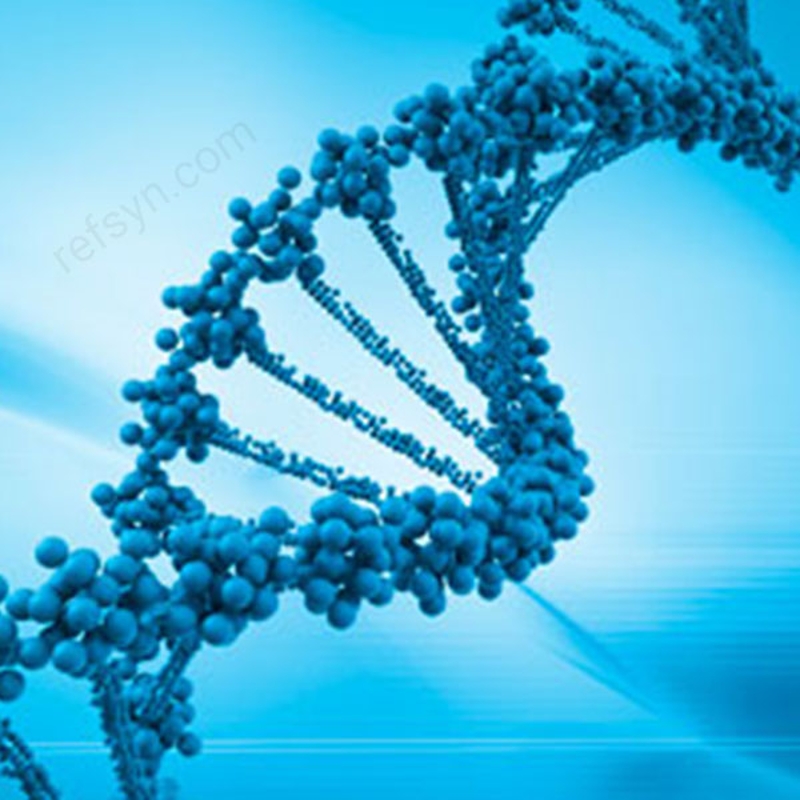Characteristics of patients with missing tumors with CDKN2A/2B copy number
-
Last Update: 2020-05-28
-
Source: Internet
-
Author: User
Search more information of high quality chemicals, good prices and reliable suppliers, visit
www.echemi.com
CDKN2A is located on chromosome 9, encodes a cell cycle hormone-dependent kinase inhibitor 2a, which is an anti-cancer geneAt least three different splicing variants of the gene are reported, two of which are thought to be CDK4 kinase inhibitorsAnother variant has an ARF domain, which stabilizes the P53 protein, and the three variants work together to regulate the G1 cell cycleDiseases associated with CDKN2A include malignant melanoma, ovarian cancer, bladder cancer, family pancreatic cancer, esophageal cancer, and lung cancerCDKN2B is also located on chromosome 9, which encodes cell cycle protein-dependent kinase inhibitor 2B, which is also an anti-cancer geneCDKN2B can be combined with CDK4 or CDK6 to form a complex that inhibits the activity of CDK kinase, thus controlling the process of cell cycle G1The 9p21 region is a chromosomal region where pure or hybrid deletions are common in many human tumorsInactivation of CDKN2B can lead to out-of-control cell growth and proliferation, leading to cancerThe co-inactivation of CDKN2A/2B is an inevitable event of Rb protein phosphorylation and cancer-causing genes inducing cell agingThe expression loss of CDKN2B is common in ovarian cancer and many tumors such as breast cancer, lung cancer, pancreatic endocrine tumor, lung cancer, esophageal cancer and so onthe absence of copies of these two groups of genes was second only to TP53 abnormalities in soft tissue sarcoma, a study based on 8,091 osteosarcoma patients showed that sarcoma often had higher frequencies of gene amplification/loss/fusion compared to other cancers, with a lower incidence of point mutationsThe most common genetic variants in sarcoma patients were TP53 (47%), CDKN2A (22%), RB1 (22%), NF1 (11%) and ATRX (11%)tinkerwith with the TCGA database when I was all right, and among the 206 patients with soft tissue sarcoma, 25 of them had CDKN2A deficiency, with poorer prognosis than other types of prognosisThe prevalence of malignant peripheral neurosaroma, mucus fibroids and undifferentiated polymorphic sarcoma was higher among themA study based on 143 melanoma patients found that 56% of patients had CDKN2A purity or hetero-conjure deficiency, CDK4 amplification and/or CDKN2A was missing and CCND1 amplification had shorter lifespansCDKN2A/2B deficiency has a contradiction in the efficacy of PD-1/PD-L1, one view is that the deficiency can lead to PD-1/PD-L1 treatment caused by the super-progress of tumor outbreaks, another view is that CDKN2A/2B not only does not lead to super-progress, but also promote the efficacy of immunotherapyNegative studies, such as: studies reported that CDNK2A/B inactivation or missing copies may be associated with poor immunotherapy effectiveness in tumor patients, a non-small cell lung cancer based on 20 patients treated with PD-1 reported that 5 patients experienced hyper-progression, but genetic test results showed that 1 patient MDM2 amplification, and 4 carrying CDKN2A/B inactivated mutation Positive study cases, such as: Studies report that CDKN2A/2B inactivated mutations may be associated with high expression of PD-1/PD-L1, a study based on 197 lung cancer, 24.8% of patients with CDKN2A mutations, these The ratio of 1% of patients with PD-L was 65%, and another study based on 102 melanoma patients reported that CDKN2A mutation patients had better efficacy, with no progressrate in year: BRAF52.2%, CDKN2A 58.2%, NRAS 30.5%, P5337.7%, response rate: BRAF46.4%, CDKN2A38.5%, NRAS 22.2% and P5340 0% conclusion: So for CDKN2A/2B deficiency and PD-1/PD-L1 treatment effect, personally think that should not be generalized whether it is negative or positive, at least without the support of larger-scale clinical data, can only be considered CDKN2A /2B deficiency is risky for immunotherapy, but in terms of the few examples I have seen with me, it doesn't seem to have a negative effect Palbociclib is an oral small molecule inhibitor of cell-cycle protein-dependent kinases 4 and 6, combined with lequine for the treatment of breast cancer CDKN2A (p16) deficiency is an inherent negative regulator for cell cycle protein-dependent kinases 4 and 6 Because CDKN2A/2B is a group of genes that regulate cell cycle protein kinase, studies have been conducted using oral drugs such as Palbociclib Pabosilin, abeciclib and ribociclib to inhibit cdk 4/6 One of them was based on melanoma cell lines, and the results showed that CDKN2A methylation, mutation, or p16 (INK) (4A) protein deficiency was associated with increased sensitivity to CDK4/6 inhibitor Pabosilin Palbociclib another study of multiple tumor cell lines, CDKN2A-missing cells are moderately sensitive to Abemaciclib In a clinical study of breast cancer, the median PFS for patients with CDKN2A deficiency was 9.2 months, and the median PFS for placebo was 3.8 months (p0.001) Subgroup analysis showed that patients benefited from the use of palbociclib tip: More adverse events occurred in the poblib group, mainly bone marrow inhibition Mouse models suggest that cdk4/6 inhibitors( such as palbociclib) can lead to a reversible period of rest in hematopoietic stem cells However, the cells do not apoptosis As a result, the number of mature cells circulating in peripheral blood is reduced, causing bone marrow suppression But after palbociclib stopped taking the drug, the reticentness of hematopoietic stem cells was able to re-enter the cell cycle, restoring the peripheral blood cell count.
This article is an English version of an article which is originally in the Chinese language on echemi.com and is provided for information purposes only.
This website makes no representation or warranty of any kind, either expressed or implied, as to the accuracy, completeness ownership or reliability of
the article or any translations thereof. If you have any concerns or complaints relating to the article, please send an email, providing a detailed
description of the concern or complaint, to
service@echemi.com. A staff member will contact you within 5 working days. Once verified, infringing content
will be removed immediately.






